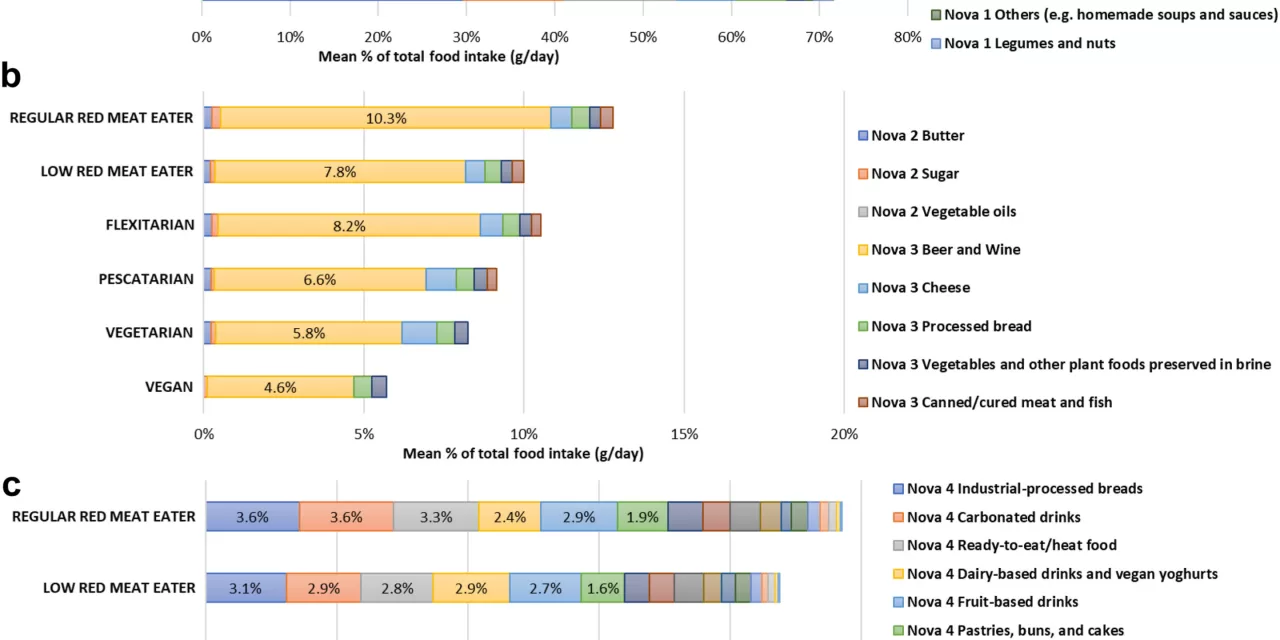A new study led by public health experts from Imperial College London, in collaboration with the University of São Paulo and the International Agency for Research on Cancer, reveals that individuals in the U.K. who follow vegetarian or vegan diets tend to consume more ultra-processed foods compared to those who include meat in their diets. This surprising finding challenges the assumption that plant-based diets are inherently healthier.
The study, published in eClinicalMedicine, analyzed data from the UK Biobank, a large research project tracking the health and lifestyle choices of over 200,000 participants. The team discovered that vegetarians and vegans not only consume more plant-based foods but also rely more heavily on ultra-processed options, such as fake meats, breakfast cereals, candy bars, noodles, and pre-packaged meals. These products are often loaded with additives, preservatives, and artificial ingredients that can negatively impact health.
While reducing meat consumption has been associated with numerous health benefits, such as lower risks of heart disease and cancer, the study suggests that the health benefits of plant-based diets may be undermined by the high intake of processed foods. These foods, although convenient, are typically high in sugar, sodium, and unhealthy fats, which can contribute to various chronic conditions.
The rise of vegetarianism and veganism in many Western countries, driven by concerns over health, ethics, and rising meat prices, has led to increased demand for processed plant-based alternatives. However, these alternatives are not necessarily healthier. In fact, many of them undergo extensive processing to mimic the texture and taste of meat, often at the expense of nutritional value.
According to the research, those who still consume meat were found to have a diet with less reliance on ultra-processed foods, which tend to undergo less refinement and preserve more of their natural nutritional content. This insight underscores the complexity of dietary choices and suggests that simply adopting a plant-based diet is not a guaranteed path to better health.
The study emphasizes the importance of not only reducing meat intake but also carefully considering the quality of plant-based foods in the diet. Researchers urge individuals to focus on whole, minimally processed foods like fruits, vegetables, legumes, and whole grains, which provide essential nutrients without the added risks associated with ultra-processed products.
The findings are a reminder that, in the pursuit of healthier eating habits, moderation and quality are key. As the popularity of plant-based diets continues to rise, future research may help clarify the balance between plant-based eating and the consumption of ultra-processed alternatives.
For more details, the full study is available in eClinicalMedicine (DOI: 10.1016/j.eclinm.2024.102931).











